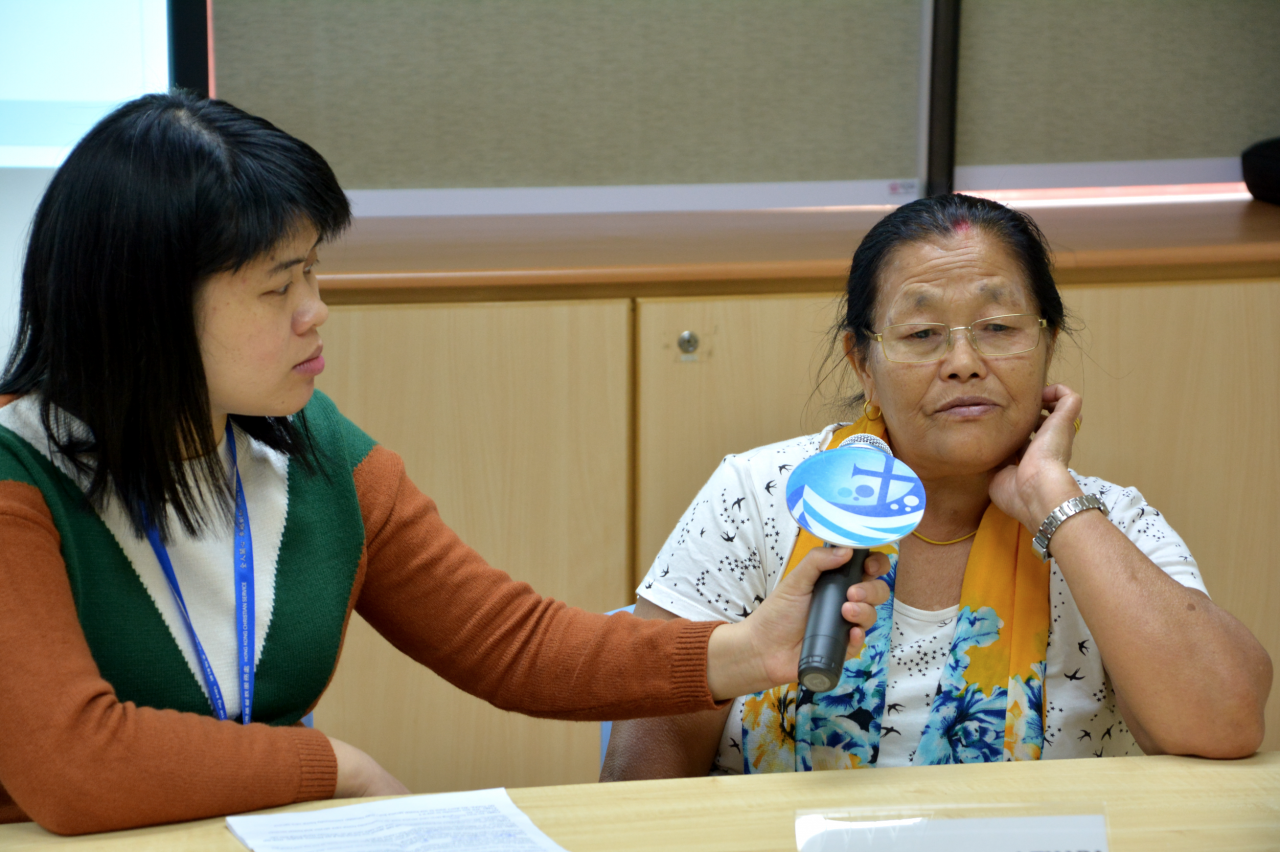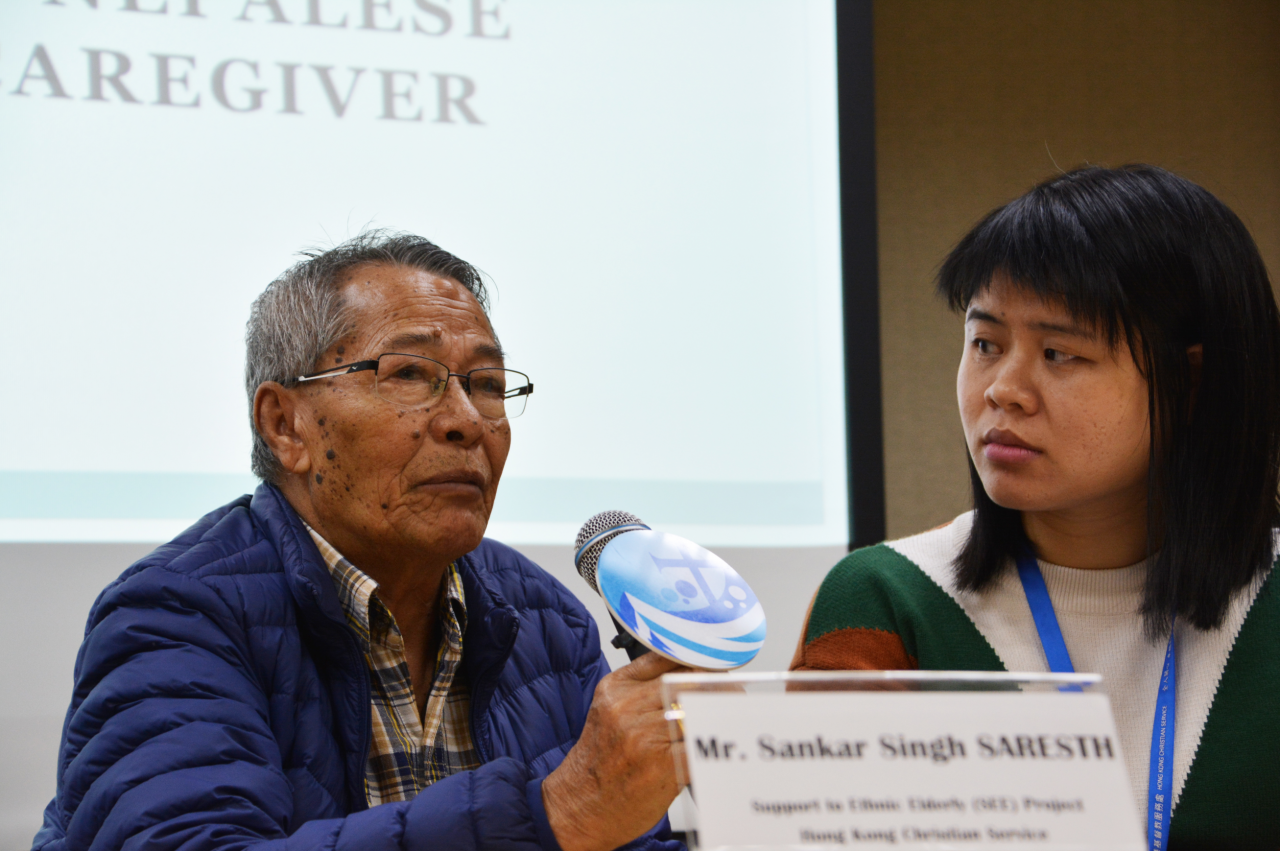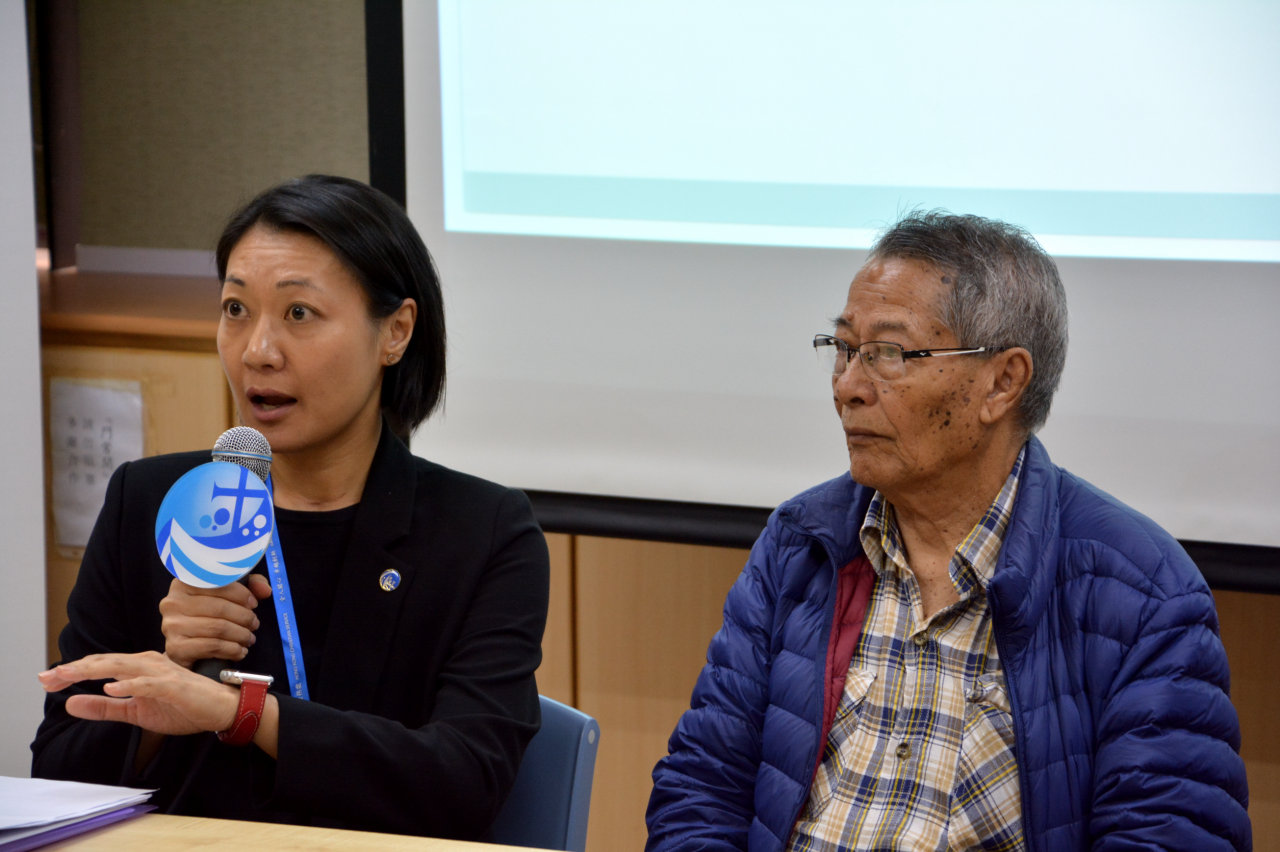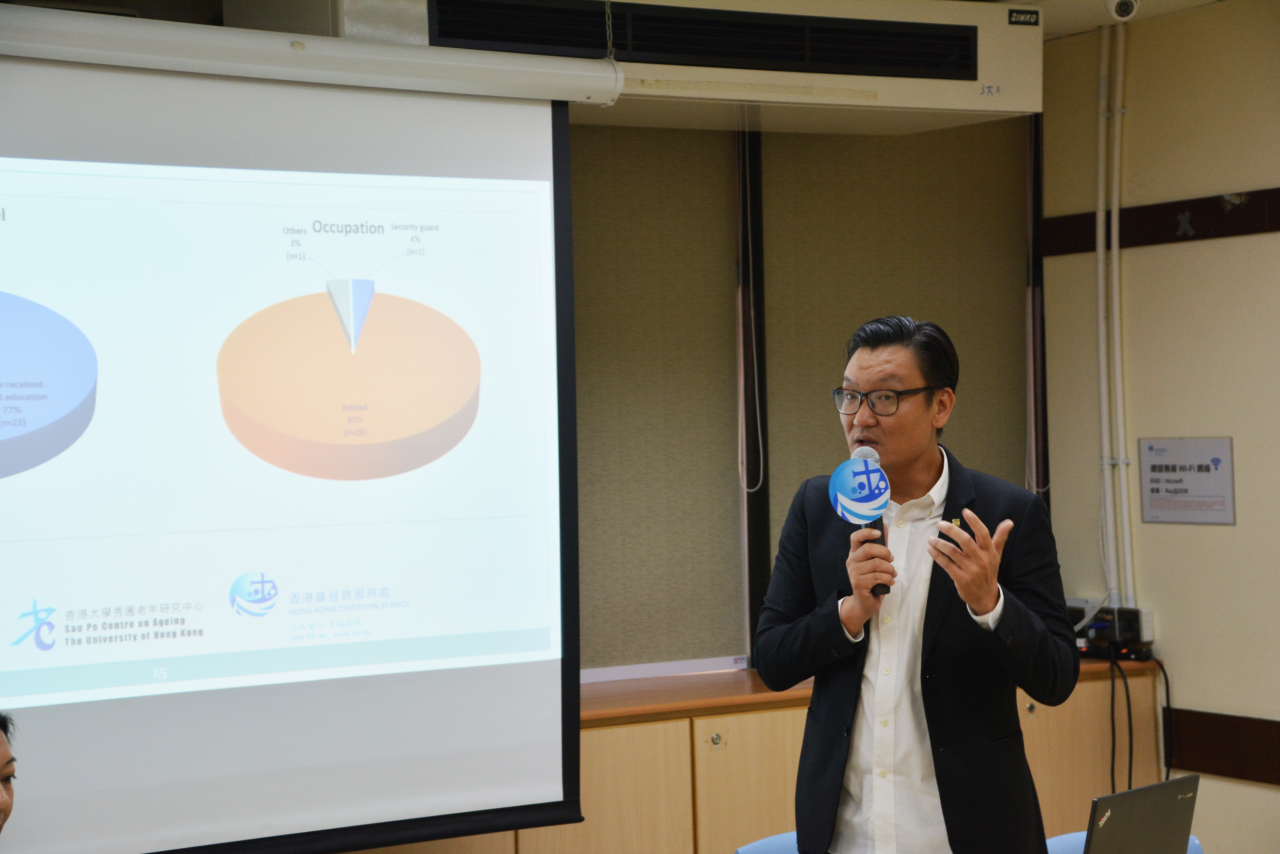Latest Study Sheds Light on Acculturation and Needs of Ethnic Minority Elderly in Hong Kong
Date: 20/11/2018
Hong Kong is becoming increasing ethnically diverse that the ageing trend is also observed in most South Asian ethnic minority groups. However, society’s understanding on their ageing needs is fragmented and the topic remains under-researched.
Therefore, the Department of Social Work and Social Administration of the Faculty of Social Sciences, The University of Hong Kong (HKU) in collaboration with Hong Kong Christian Service (HKCS) thus conducted the “Acculturation and Needs Assessment of Elderly Ethnic Minorities in Hong Kong: A Qualitative Study” during December 2017 to April 2018. The study funded by the Equal Opportunity Commission (EOC) is the first quality academic study on the acculturation and needs of elderly ethnic minorities in Hong Kong. Totally, 30 Nepalese elders aged 60 or above and 5 Nepalese carers were interviewed. The findings help to enhance our understanding on the psychosocial, physical health, financial, cultural needs of Nepalese elders as well as identifying current service gaps and providing information to facilitate a more socially inclusive society for ethnic minority elderly to enjoy ageing in Hong Kong.
Key Research Findings and Analysis
- Regarding the socioeconomic background, 60% of the Nepalese elders were female and 40% were male, almost half (48%) were between the ages of 70-74 years with majority (86%) lived in Hong Kong for 10 to 30 years or more. More than half (74%) of participants stated that they resided in subdivided housing.
- The research team noted that there is a strong preference of ageing-in-place of Nepalese elderly. Similar to local Chinese culture, participants indicated that admission to residential care services would be perceived as shameful among the Nepalese community which may imply foreseeable needs for community long-term care services.
- Most elderly participants reported that they have some form of chronic illness (hypertension 70%, diabetes 57%). Experience of loneliness due to weakening social ties and early signs of cognitive impairment were observed in some participants in which may imply needs for early screening and support on mental health. However, many of them found very difficult to navigate the health care system.
- Majority of elderly did not have basic knowledge on the types of long-term care services provided in Hong Kong nor were they aware of the method of applying for these services.
- Family support and NGOs were important sources of support as stated by most Nepalese elderly participants and their caregivers.
Recommendations
Based on the research findings, HKU and HKCS recommended key implications to promote a culturally-inclusive age-friendly Hong Kong society.
- Promotion of service mainstreaming to promote social inclusion:
- Encourage policy maker and public service providers to go beyond simply offering translation/interpretation services but recognising elderly ethnic minorities’ right for equal access of information/services/resources.
- Incorporate and consider the needs of ethnic minorities in any planned policy action such as the design, implementation and delivery of elderly-related services and supportive measures.
- iii)The long-term care needs of ethnic minorities should be part of the service planning process and be all accessible by removing structural barriers to all elderly regardless of the differences in age, gender, religion, sexual orientation, race/ethnicity in Hong Kong.
- Enhancement of cultural competence of existing helping professionals in Hong Kong. These include but not limited to social workers, care workers, medical personnel and so forth.
- To develop clear and explicit operational codes for professional and frontline staff on how to engage and work with ethnic minority elderly including guidelines on closely collaborating with interpreters with necessary additional resources and useful assessment tools available.
- To further promote social inclusion, connecting Nepalese elderly to the wider local community via cultural exchange activities
- More proactive measures on empowering Nepalese elderly and their carers in accessing and navigating essential information, services and support are needed.
In the press conference on 20 November 2018, Dr. Paul Wong, Associate Professor of HKU pointed that “most Nepalese elderly and their caregivers mentioned that Hong Kong as a favourable city in terms of more comprehensive welfare and support service for elderly though they encounter the added burden of culturally insensitivity and difficulties in accessing relevant elderly services.” Ms. Karrie Chan, Deputy Director (Elderly, Rehabilitation & Community) of HKCS said that “ in view of the ageing trend of ethnic minority population, the society needs to get better prepare to facilitate culturally and linguistically diverse elders to have a dignified and quality ageing in Hong Kong, a place they called home where they had contributed for its prosperity.”
For media enquiries, please contact:
- Dr. Paul Wong ─ Associate Professor ─ Department of Social Work and Social Administration, The University of Hong Kong ─ Tel: 39175029 ─ Email: paulw@hku.hk
- Ms. Karrie Chan ─ Hong Kong Christian Service ─ Deputy Director (Elderly, Rehabilitation & Community) ─ Tel: 27316283 ─ Email: karriechan@hkcs.org










